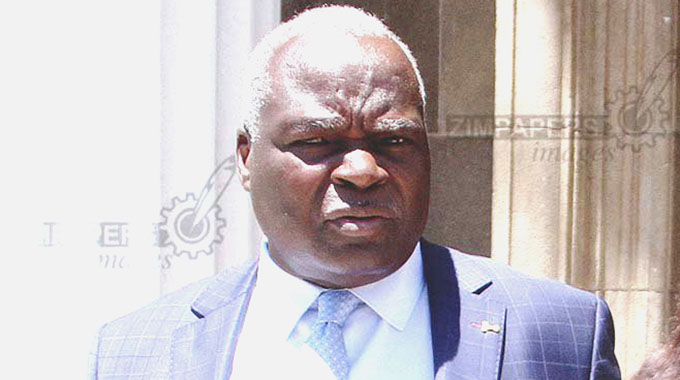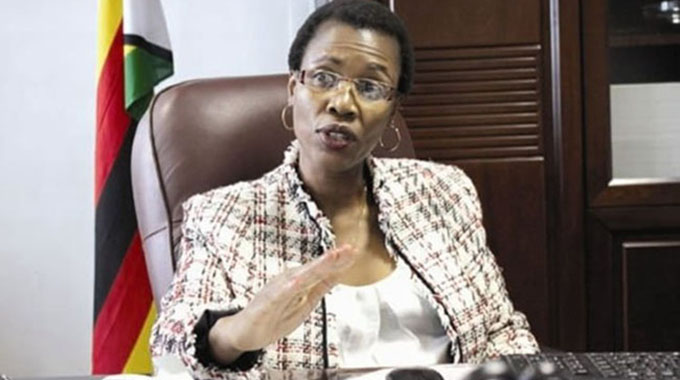Councillors interface on

Mukudzei Chingwere-Herald Reporter
Councillors from urban and rural councils are meeting in Harare to interact with Government ministries and each other, as they work out how to upgrade services and planning and ensure that requirements of their areas are met.
President Mnangagwa is today scheduled to interface with councillors – both urban and rural – as a way of erecting governance cohesion between central Government and councils.
Prior to the engagement with President Mnangagwa, councillors interfaced with several Government ministers, who fielded their questions yesterday telling local authorities what the Government is doing and what is expected from the councils.
Health matters are critical at both central and local government levels, and the Government remains committed to availing adequate health infrastructure in tandem with the devolution agenda, Vice President and Minister of Health and Child Care Constantino Chiwenga told the meeting.
VP Chiwenga was speaking through Permanent Secretary for Health and Child Care Dr Jasper Chimedza.
“The Ministry of Health and Child Care remains committed to availing robust and adequate infrastructure in tandem with the devolution agenda,” said VP Chiwenga.
“This is a continuous process and the ministry has developed milestones to assess progress in Government’s strides towards the attainment of vision 2030.
“There is scope to increase support in non-communicable diseases such as diabetes, renal failure and others as non-communicable diseases in general have become the leading cause of deaths.
“A national health insurance scheme is underway as we seek to ensure that everyone has access to at least 90 percent of primary care services.”
The health presentation focused on how devolution promoted access to primary healthcare through provision of adequate infrastructure.
Devolution in the health sector is aimed at the provision of above 90 percent of essential health services at the lower levels of the health system in the context of universal health coverage.
This is where the local clinics, being continually improved and upgraded, come in to ensure there is a solid network within a short distance of everyone with district hospitals providing the next level, again reasonably close to most people.
But now the idea is to have health posts, one in almost every village, where advice and basic care can be dispensed.
VP Chiwenga said with prevention better than cure, primarily focus was on early disease detection, diagnosis, and intervention.
“The Government has defined health care services at the primary level to be at the community level and at the healthcare delivery platforms at the district level,” he said.
“Primary health care services are having a functioning and responsive district health system made up of community level services, clinic level services and district hospital level services, which we usually call the secondary level.
“Our national health strategy is clear as it seeks to leave no one and no place behind by encompassing the primary health care approach as its core strategy for health care provision.”
The Government was strengthening the health approach in the context of devolution and universal health coverage, focusing on building over 6 000 health posts below the clinic, each to serve 350 households which is about 1 500 population for each health post, translating to almost a health post per village.
Minister of Transport and Infrastructural Development Felix Mhona said Government was aware that a sustainable road network was an enabler of devolution and that productive sectors such as agriculture and mining were identified as key to the success of NDS1.
He said it was imperative that Government made deliberate interventions in order to redress the bad state of the roads through the implementation of Emergency Road Rehabilitation Programme 2.
Minister Mhona blamed local authorities diverting money set aside for roads.
“We have also noted with concern that some local roads authorities have been using ERRP2 resources to fund their own programmes,” he said.
“Roads authorities would diverge from approved road works which were budgeted under the ERRP2 and do some other roads.
“A case in point is where ERRP2 funds have been used to fund roads in council housing developments for which they collected money for road development. In other cases, ERRP2 funds were used to fund salaries not related to the programme. This impacted negatively on progress and resulted in set targets being missed.”
Minister of Public Service, Labour and Social Welfare Professor Paul Mavima presented the food deficit mitigation programme and response plan for the next year and the role of traditional leaders.
“Government of Zimbabwe remains committed to ensure that no one dies of hunger,” he said.
“Where possible, in line with the transition from welfarist to a developmental approach, which is at the core of the National Development Strategy, food distribution will be coupled with food for assets and public community works.”
Minister of Local Government and Public Works July Moyo said the indaba was proving to be a huge success as the Government was learning from the councillors and hopes the councillors are also learning from them.
Minister of National Housing and Social Amenities Daniel Garwe said land barons and some councillors were parcelling out land, a move which was beyond their mandate.
Lands, Agriculture, Fisheries, Water and Rural Development Minister Dr Anxious Masuka talked of land use where fertile land which can be used for agricultural produce was being channelled towards residential stands.
Zimbabwe Local Government Association president Mr Guy Mutasa said the indaba was a great opportunity for local authorities and government to interact on ways that improve service delivery.
“It’s a rare opportunity for councillors to be exposed to interact and exchange notes where things are not going well with line ministries,” he said.
“This is a first of its kind where rural and urban councillors meet and discuss issues that are affecting service delivery within their local authorities.”











Comments